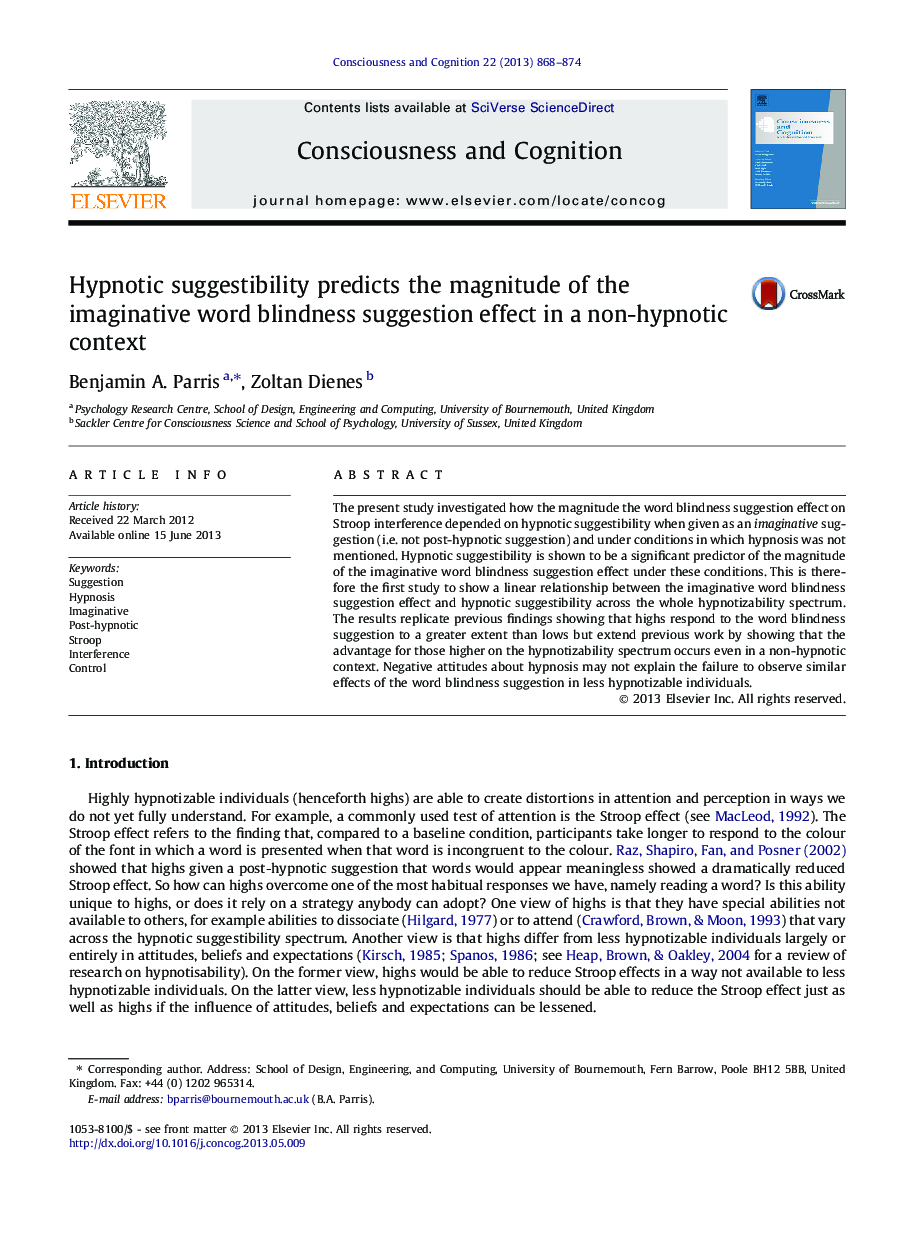| Article ID | Journal | Published Year | Pages | File Type |
|---|---|---|---|---|
| 10458464 | Consciousness and Cognition | 2013 | 7 Pages |
Abstract
The present study investigated how the magnitude the word blindness suggestion effect on Stroop interference depended on hypnotic suggestibility when given as an imaginative suggestion (i.e. not post-hypnotic suggestion) and under conditions in which hypnosis was not mentioned. Hypnotic suggestibility is shown to be a significant predictor of the magnitude of the imaginative word blindness suggestion effect under these conditions. This is therefore the first study to show a linear relationship between the imaginative word blindness suggestion effect and hypnotic suggestibility across the whole hypnotizability spectrum. The results replicate previous findings showing that highs respond to the word blindness suggestion to a greater extent than lows but extend previous work by showing that the advantage for those higher on the hypnotizability spectrum occurs even in a non-hypnotic context. Negative attitudes about hypnosis may not explain the failure to observe similar effects of the word blindness suggestion in less hypnotizable individuals.
Related Topics
Life Sciences
Neuroscience
Cognitive Neuroscience
Authors
Benjamin A. Parris, Zoltan Dienes,
